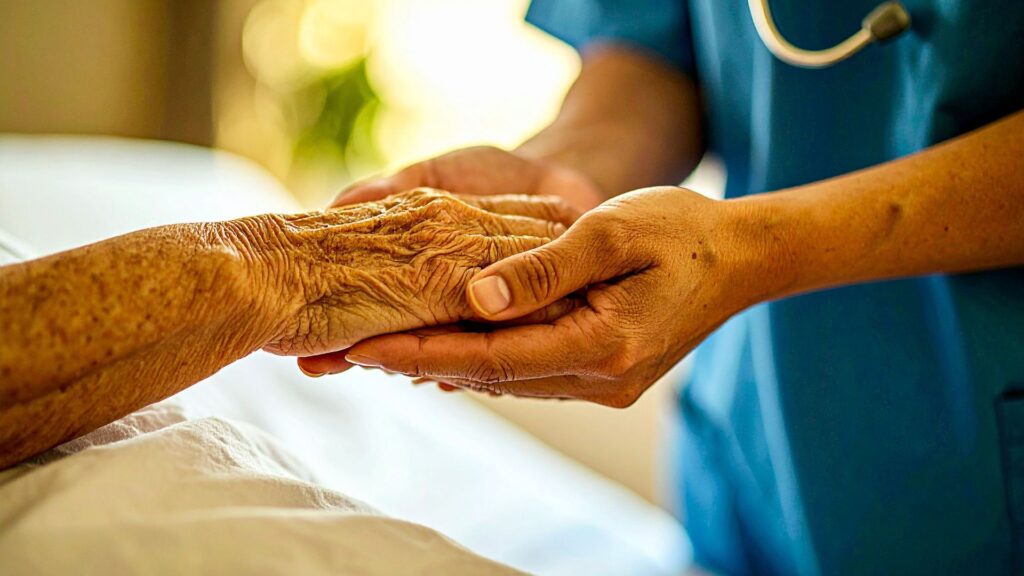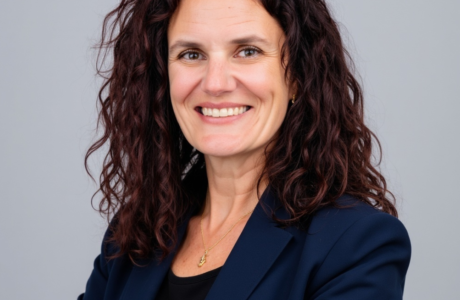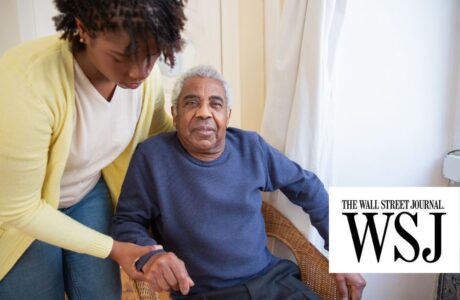
National Family Caregivers Month: From Burnout to Balance—A Survival Guide
Family caregiver burnout is a medical emergency, not a personal failing. Sustainable caregiving requires systemic support: respite care, mental health services, financial assistance, and permission to prioritize your own wellbeing. Recognizing early warning signs, building support networks, and accessing available resources transforms caregiving from crisis management into a supported, humane journey for both caregiver and patient.
You didn’t choose this role. There was no job description, no training program, no interview. One day, someone you love needed care, and you stepped forward.
Now you’re managing medications, coordinating appointments, providing intimate personal care, making life-and-death decisions, and somehow also maintaining your job, your relationships, and your own health.
Except you’re not maintaining your own health, are you?
You can’t remember the last time you slept through the night. You’ve postponed your own doctor appointments three times. You snap at people you love. You feel guilty for feeling resentful, resentful for feeling obligated, and exhausted from feeling everything all at once.
If this sounds familiar, you need to know something important: This is caregiver burnout, and it’s not a character flaw. It’s a predictable physiological and psychological response to chronic stress without adequate support.
More than 53 million Americans are family caregivers right now. Research shows that without intervention, burnout damages both caregiver and patient outcomes. But here’s the crucial part—it’s preventable, it’s treatable, and you don’t have to wait until you’re in crisis to get help.
Let’s start by figuring out where you are right now.

Are You Experiencing Caregiver Burnout? The Warning Signs
Burnout doesn’t arrive as a single dramatic collapse. It accumulates gradually, like water filling a bathtub one drop at a time. Then one day you realize you don’t recognize yourself anymore.
The first step to recovery is recognition. Here’s what burnout actually looks like:
Physical Warning Signs
Your body is trying to tell you something. Are you experiencing:
- Sleep disturbances beyond just interrupted nights — You lie awake even when you have the chance to sleep, or you sleep excessively as emotional escape
- Getting sick constantly — Frequent colds, infections, or unexplained illness (caregiver stress measurably suppresses immune function)
- Chronic pain without clear cause — Persistent headaches, back pain, neck tension, digestive issues
- Changes in appetite and weight — Significant weight loss or gain, eating for comfort, or forgetting meals entirely
- Bone-deep exhaustion — Fatigue that sleep doesn’t fix, that makes every task feel impossible
- Ignoring your own health — Skipping your medications, missing medical appointments, dismissing symptoms that would alarm you in your loved one
Emotional & Psychological Warning Signs
Your mental health is as important as your physical health. Notice if you’re feeling:
- Persistent anxiety — Constant worry, catastrophic thinking, inability to relax even for a moment
- Depression creeping in — Hopelessness, loss of interest in activities you once enjoyed, difficulty finding meaning or joy
- Irritability and anger — Short temper with your care recipient, explosive reactions to minor frustrations, rage you didn’t know you had
- Emotional numbness — Feeling nothing at all, going through motions robotically, disconnection from your own emotions
- Crushing guilt and shame — Feeling like you’re never doing enough, guilty for wanting breaks, ashamed of negative feelings toward the person you’re caring for
- Social withdrawal — Isolating from friends, declining invitations, avoiding conversations about your caregiving situation
- Loss of who you are — Forgetting who you were before caregiving, feeling like “just a caregiver” rather than a complete person
Cognitive Warning Signs
Your thinking might be affected too:
- Difficulty concentrating — Trouble focusing on conversations, making decisions, or remembering important information
- Mental fog — Feeling confused, disoriented, or overwhelmed by tasks that used to be manageable
- Compassion fatigue — Decreased ability to empathize with your care recipient, emotional detachment as self-protection
If you recognized yourself in three or more of these signs, you’re experiencing burnout. And here’s what you need to understand about that.
Why This Matters More Than You Think
Burnout doesn’t stay contained. It spreads like a slow-moving fire through every area of your life:
→ Increased conflict with family members who don’t understand
→ Decreased quality of care you’re able to provide
→ Higher rates of medication errors and missed appointments
→ Increased likelihood of unintentional patient neglect
→ Greater risk of your own mental health crisis
→ Higher mortality risk for you, the caregiver
That last point isn’t hyperbole. Studies show that highly stressed caregivers have 63% higher mortality risk than non-caregivers of the same age. Caregiver burnout doesn’t just feel bad—it can quite literally kill you.
But before we talk about solutions, you need to understand why this is happening to you. Because it’s not your fault.
Why Family Caregiving Breaks Even the Strongest People
You might be thinking, “Other people manage. Why can’t I?” The answer is simple: Family caregiving is uniquely, extraordinarily difficult in ways that aren’t obvious until you’re living it.
Understanding why caregiving is so hard helps combat the shame many caregivers feel about struggling. Here’s what’s really happening:
The Relationship Has Fundamentally Changed
When you become a caregiver for a parent, spouse, or sibling, you’re not just adding tasks to your day. The entire relationship transforms.
The parent who once cared for you now depends on you for intimate care. The partner you built a life with can no longer be your equal support. The sibling relationship shifts to dependency. You’re grieving the relationship as it was while simultaneously caring for the person in front of you.
This is called ambiguous loss—your loved one is still physically present but may be cognitively, emotionally, or functionally different. You grieve who they were while caring for who they are now. Psychologists identify this as one of the most difficult forms of grief to process.
You’re On Call 24/7 With No End Date
Unlike professional caregivers who work shifts and go home, you never clock out. Even when you’re not actively providing care, the mental load continues. You’re always listening for a fall, always anticipating the next crisis, always carrying the responsibility.
And unlike parenting young children—which is also exhausting but has a developmental endpoint—caregiving for a seriously ill or declining loved one often has no predictable end. You can’t tell yourself “just two more years until they go to school” or “it gets easier when they’re older.”
You’re Expected to Be an Expert With No Training
Somehow, you’re supposed to know how to:
- Perform complex medical tasks
- Manage symptoms and pain
- Navigate labyrinthine healthcare and insurance systems
- Make critical, often irreversible decisions
- Advocate effectively with medical professionals
- Coordinate between multiple specialists
All with minimal training, often learning through trial and error with your loved one’s wellbeing in the balance.
The Financial Burden Is Crushing
Many caregivers reduce work hours or leave employment entirely. According to AARP research, family caregivers spend an average of $7,242 annually on out-of-pocket caregiving costs—medication, supplies, home modifications, transportation, and services insurance doesn’t cover.
You’re not just exhausted; you’re often going broke doing this.
You’ve Lost Your Support System
Caregiving often means withdrawing from social activities, friendships, and community involvement—cutting off the very relationships that protect against burnout. Friends stop calling because you’ve declined invitations too many times. Hobbies fall away. Your world shrinks to the care recipient and survival.
You’re Grieving While Caregiving
When caring for someone with terminal illness or progressive disease, you’re experiencing anticipatory grief—mourning their approaching death while simultaneously caring for them, making decisions with them, and trying to stay present. This dual process is emotionally exhausting in ways that compound daily.
Bottom line: If you’re struggling, it’s not because you’re weak. It’s because what you’re doing is genuinely one of the hardest things a human can do, and you’re trying to do it alone without support.
Which brings us to the most important thing you need to hear right now.

When You’re Drowning: Getting Professional Help Right Now
Some situations require immediate professional intervention—not next week, not when you “can’t take it anymore,” but now. If you’re experiencing any of these, reaching out for help today isn’t optional.
Red Flags That Require Immediate Action
For you, the caregiver:
- Thoughts of harming yourself or your care recipient
- Using alcohol or drugs to cope
- Complete inability to function in daily life
- Severe depression or anxiety that’s interfering with basic tasks
- Your own physical health is in crisis
For your care recipient:
- Behavioral issues that endanger you or themselves (aggression, wandering, self-harm)
- Complex medical needs that require nursing-level expertise
- Pain or symptoms you can’t adequately manage
- Rapid decline that suggests they need hospice evaluation
For your family system:
- Serious conflicts about care decisions that are paralyzing progress
- Financial resources are completely exhausted
- There are no available backup caregivers
- Your living situation is unsafe for their care needs
If any of these apply, here’s what to do right now:
- Call your primary care physician or their physician and say, “I’m experiencing caregiver burnout and need immediate support.” They can refer you to resources.
- Contact the Eldercare Locator at 1-800-677-1116 to connect with your local Area Agency on Aging for emergency respite care and support services.
- If you’re in mental health crisis, call 988 (Suicide & Crisis Lifeline) or text HELLO to 741741 (Crisis Text Line).
- Call Empowered Endings for a Connection & Clarity Call to discuss immediate support options and care coordination.
You don’t need to be on the verge of complete collapse to deserve help. But if you are there, please reach out today.
Professional Services That Can Change Everything
Once you’re stabilized, these services can transform your caregiving experience:
Care managers (geriatric care managers): Professional who assess needs, create care plans, coordinate all services, and navigate complex systems. Especially valuable when you don’t even know where to start.
Home health aides: Provide assistance with bathing, dressing, mobility, and medication reminders. Medicare covers limited home health when your loved one is homebound and under physician orders.
Palliative care teams: Physician-led teams addressing symptom management, care coordination, and emotional support for serious illness. Can work alongside curative treatment—not just for end of life.
Hospice care: For individuals with terminal diagnosis and life expectancy of six months or less. Medicare covers completely, including medications, equipment, and respite care for you.
Adult day programs: Structured activities, meals, and health monitoring during daytime hours, allowing you to work or rest.
Mental health professionals: Therapists specializing in caregiver issues can help you process anticipatory grief, manage burnout, and develop coping strategies.
Now let’s talk about building the support system that prevents crisis in the first place.

Building Your Caregiver Support System: You Can’t Do This Alone
Sustainable caregiving requires a team. Not just help “when you need it,” but consistent, reliable, structured support. Building that team is active work, but it’s essential to survival.
Here’s how to actually make it happen:
Step 1: Identify and Delegate Tasks
Start by making this simple but revelatory list:
Everything you’re currently doing: Medical care | Transportation | Meal prep | Cleaning | Laundry | Financial management | Insurance coordination | Emotional support | Medical appointments | Medication management | Personal care | Grocery shopping
Now categorize each task:
- Must be done by you (only you can do it)
- Could be done by family (but they need specific assignments)
- Could be done by paid services (if affordable or through programs)
- Could be eliminated or simplified (not actually necessary)
Then assign specific tasks to specific people:
Instead of vague offers like “Let me know if you need anything” (which puts the burden back on you), make specific requests:
- “Can you take Mom to her Tuesday physical therapy appointments for the next month?”
- “Can you handle her prescription refills and pickup every two weeks?”
- “Can you bring dinner every Wednesday evening?”
- “Can you do her grocery shopping from this list every Sunday?”
Specificity is the key. People want to help but often don’t know how. Tell them exactly what would help.
Step 2: Get Respite Care—It’s Not Optional
Respite care provides temporary relief so you can rest, attend to personal needs, or simply breathe. This isn’t a luxury or something to consider “if it gets really bad.” It’s preventive medicine for burnout.
Types of respite care:
In-home respite: Trained caregiver comes to your home for several hours while you leave. You can sleep, go to your own doctor appointment, see a friend, or just drive around alone listening to music.
Adult day programs: Your loved one attends a program with structured activities, meals, and supervision during daytime hours (usually 9am-3pm). You get regular, predictable time off.
Overnight respite: Short-term residential care allowing you to take weekend or week-long breaks. Your loved one is cared for in a facility while you actually rest.
Emergency respite: Crisis intervention when you become ill, have a family emergency, or reach a breaking point.
How to actually access respite care:
- Call the Eldercare Locator: 1-800-677-1116 — They’ll connect you to your local Area Agency on Aging, which has information on respite programs, some with financial assistance.
- VA Caregiver Support Program — If your loved one is a veteran, call 1-855-260-3274 for respite benefits.
- Disease-specific organizations — Alzheimer’s Association, ALS Association, Parkinson’s Foundation all offer respite resources and sometimes funding.
- Faith communities — Many churches, synagogues, and mosques have volunteer respite programs.
- Private agencies — If you can afford it, hire professional caregivers for regular scheduled breaks.
Start with just two hours a week. That’s it. Two hours where someone else is responsible and you are completely off duty. It will feel revolutionary.
Step 3: Find Your People—Support Groups That Actually Help
Support groups connect you with people who understand without explanation. Hearing “me too” from someone in your situation reduces isolation profoundly.
Finding support groups:
- Your hospital’s social work department
- Disease-specific organizations (Alzheimer’s, cancer, ALS)
- Family Caregiver Alliance: caregiver.org
- Online communities like CaringBridge
- Facebook groups for specific conditions (search “[condition] caregivers”)
- Local senior centers or community organizations
Try at least two different groups before deciding it’s not for you. Groups have different personalities. One might click even if another doesn’t.
Step 4: Get Mental Health Support
Therapy isn’t “extra” when you’re caregiving—it’s essential maintenance, like changing the oil in your car.
When you definitely need therapy:
- Symptoms of depression or anxiety interfering with functioning
- Relationship conflicts escalating
- Inability to manage emotions
- Persistent guilt or shame
- Substance use as coping mechanism
Finding therapists who understand caregiving:
- Psychology Today therapist directory (filter for “caregiver” specialty)
- Your Employee Assistance Program (EAP) through work (often includes free sessions)
- Medicare covers mental health services
- Open Path Collective offers reduced-fee therapy
What to say when you call: “I’m a family caregiver experiencing burnout and I need support processing anticipatory grief and managing stress.”
That one sentence will get you in the door with the right professional.
Financial Resources You Didn’t Know Existed
Caregiving shouldn’t bankrupt families. Multiple resources exist, though they’re often difficult to navigate. Here’s what’s actually available and how to access it:
Government Programs & Benefits
Family and Medical Leave Act (FMLA): Provides up to 12 weeks unpaid leave while protecting your job. Eligibility requirements apply, but if you qualify, this lets you take time off for caregiving without losing employment.
Medicaid (Medi-Cal in California): Covers home and community-based services, respite care, and adult day programs for eligible individuals. Some states now pay family caregivers through Medicaid programs—check with your local Area Agency on Aging.
VA Aid and Attendance: Monthly benefit for veterans needing help with daily activities. 2025 rates up to $2,431/month for veteran with dependent. Often overlooked but can be life-changing for eligible families.
National Family Caregiver Support Program: Services through Area Agencies on Aging including respite care, counseling, support groups, and sometimes direct financial assistance. Call 1-800-677-1116.
Social Security Disability Insurance (SSDI) & Supplemental Security Income (SSI): For care recipients under 65 with qualifying disabilities or low-income individuals needing assistance.
Tax Deductions & Credits (Don’t Leave Money on the Table)
Medical expense deduction: If your care recipient qualifies as your dependent, medical expenses exceeding 7.5% of adjusted gross income are deductible.
Dependent care credit: May qualify if caring for spouse or dependent unable to care for themselves while you work.
Head of household status: May qualify for better tax rates if you’re financially supporting your care recipient.
Important: Consult a tax professional familiar with caregiver deductions. Rules are complex and many caregivers miss thousands in potential savings.
Non-Profit & Foundation Resources
Disease-specific organizations often provide financial assistance for equipment, respite care, or medications:
- American Cancer Society
- ALS Association
- Parkinson’s Foundation
- Alzheimer’s Association
Pharmaceutical patient assistance programs: Most drug manufacturers offer assistance programs for expensive medications. Ask your pharmacist or search “patient assistance program [drug name].”
Local community foundations: Many have emergency assistance funds for families in crisis. Search “[your city] community foundation caregiver assistance.”
Faith-based organizations: Churches, synagogues, mosques often have benevolence funds or volunteer support services available to community members, even if you’re not a member.

Real Self-Care: Beyond Bubble Baths and Face Masks
Self-care for caregivers needs to be practical, accessible, and address real needs—not Instagram-worthy but unattainable suggestions.
Let’s be honest: When you’re this exhausted, “take a relaxing bath” feels insulting. Here’s what actually works:
Micro Self-Care: When You Only Have 5 Minutes
5-minute interventions you can do right now:
- Five deep breaths (seriously, just five slow ones)
- Step outside for fresh air
- Call one friend and talk about anything except caregiving
- Listen to one favorite song all the way through
- Stretch your neck, shoulders, and back
- Write down three things you’re grateful for (even tiny things)
- Five-minute meditation using an app (Headspace, Calm, Insight Timer)
15-minute interventions when you have a bit more time:
- Short walk around your block
- Hot shower with the door locked
- Watch a funny video that makes you laugh
- Read one chapter of a book
- Journal stream-of-consciousness (no editing, just write)
- Power nap (set an alarm)
These aren’t going to cure burnout. But they’re pressure release valves that prevent total collapse.
The Non-Negotiables: Self-Care You Cannot Skip
Certain self-care items cannot be compromised without serious consequences:
Sleep: Even limited sleep needs protection. If you’re chronically sleep-deprived, use respite care for overnight relief. Sleep deprivation causes cognitive decline, emotional dysregulation, and increased caregiving errors. It’s not optional.
Your own medical care: Your doctor appointments, medications, and health monitoring must continue. Schedule them like non-cancellable meetings. Put them on the calendar first, then schedule everything else around them.
Nutrition: When time is limited, prepared meals, meal delivery services, or simplified cooking keeps you functional. Proper nutrition supports stress resilience. You can’t run on fumes and caffeine indefinitely.
Movement: Even 10-minute walks improve mood, reduce anxiety, and increase energy. Movement is medicine for caregiver stress. It doesn’t have to be a gym membership or running marathons—just moving your body regularly.
Setting Boundaries With Family Members (The Hard Part)
Other family members may have opinions about care but not be providing hands-on support. Boundaries protect your capacity.
Scripts for boundary setting you can use verbatim:
- “I appreciate your input, but I’m the one managing daily care, so I’ll make this decision.”
- “If you’d like to have input on care decisions, I need you to commit to [specific task] every week.”
- “I can’t take on additional responsibilities right now. What I need is [specific support].”
- “Sunday afternoons are when I rest. I won’t be available for caregiving during that time unless it’s an actual emergency.”
These feel harsh at first. They’re not. They’re survival.
The Revolutionary Act of Saying No
You cannot do everything for everyone. Learning to decline requests without guilt is essential.
Practice these phrases until they feel natural:
- “I can’t commit to that right now.”
- “That doesn’t work for me.”
- “I need to prioritize my own health right now.”
- “I’m not able to take that on.”
Remember: No is a complete sentence. Explanation is optional.
You don’t have to justify your limitations to anyone. “No” by itself is sufficient.
How Empowered Endings Supports the Whole Family
At Empowered Endings, we recognize that caring for the caregiver is essential to caring for the patient. Our integrated model provides support for the entire family system, not just the person who’s ill.
Our caregiver-focused services include:
- 24/7 physician-led support reducing your decision-making burden and providing expert guidance when you’re not sure what to do
- Respite care coordination connecting you to temporary relief services in your area
- Caregiver mental health counseling addressing burnout, anticipatory grief, and compassion fatigue with therapists who specialize in caregiving
- Family systems therapy navigating conflicts, clarifying roles, and improving communication when families are struggling
- Care planning assistance reducing logistical overwhelm through organized, coordinated care plans
- Symptom management optimization ensuring your loved one’s comfort, which directly reduces your stress
- Connection to financial resources helping you access benefits and assistance programs you might not know about
- Support groups facilitated by grief counselors and social workers who understand what you’re going through
- Education and training providing skills and confidence for complex care tasks
We believe that sustainable caregiving requires professional support, and we’re committed to ensuring caregivers receive the care they need while caring for others.
Because here’s the truth: You can’t pour from an empty cup. And you shouldn’t have to.
👉 Your One Next Step
Caregivers: Book a complimentary Connection & Clarity Call to discuss caregiver support services, respite options, and strategies for sustainable caregiving.
This is a gentle, no-pressure 30-45 minute conversation to explore what support might look like for your specific situation.
You don’t have to do this alone. And asking for help isn’t giving up—it’s the wisest thing you can do.
References
Family Caregiver Alliance: National Center on Caregiving | AARP Public Policy Institute: Valuing the Invaluable Report | National Alliance for Caregiving: Caregiving in the U.S. Report | CDC: Caregiver Health | NIA: Taking Care of Yourself | Eldercare Locator: 1-800-677-1116





